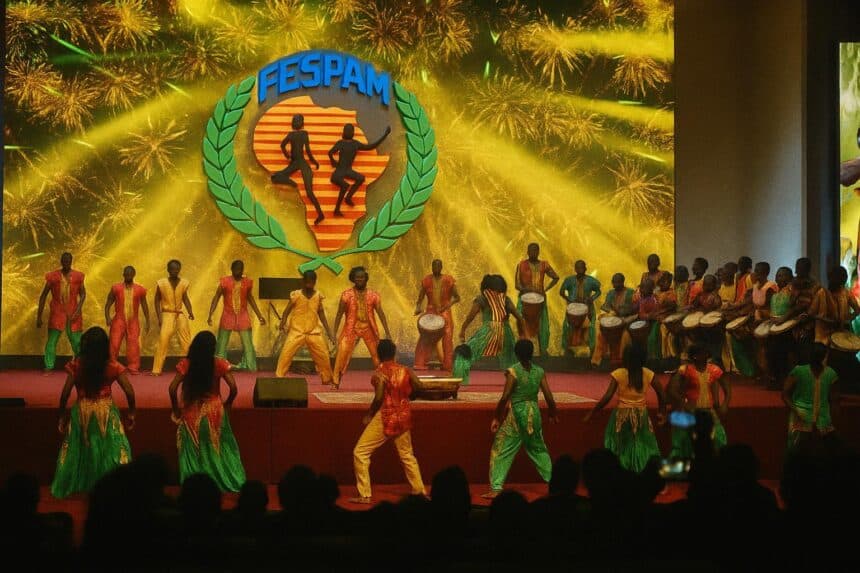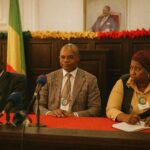A Symbolic Curtain-Raiser in Brazzaville
The velvet-draped hall of the Palais des Congrès reverberated with tama drums and ululations on 19 July 2025 when President Denis Sassou Nguesso formally declared open the twelfth Pan-African Music Festival. By the time the presidential fanfare receded, the packed audience—diplomats, local notables and visiting artists—had little doubt that the Republic of Congo intended to turn austerity into artistry. Mayor Dieudonné Bantsimba, UNESCO’s resident representative Fatoumata Barry Marega and Festival Commissioner Hugues Gervais Ondaye took the rostrum in quick succession, each emphasising the festival’s leitmotif of unity through rhythm.
Economic Headwinds and Adaptive Governance
The festival arrives against a backdrop of tightened public finances following fluctuations in global oil prices and post-pandemic recovery costs. Government appropriations, while slimmer than in the 2019 edition, were supplemented by private sponsorships and an expanded diaspora fund. The Ministry of Cultural Industries, led by Marie-France Lydie Hélène Pongault, framed the leaner budget as an invitation to innovation rather than a constraint, arguing that “scarcity compels creativity and reveals authentic talent,” a statement that resonated with attendees (Les Dépêches de Brazzaville, 20 July 2025).
UNESCO’s Endorsement and Continental Resonance
UNESCO Director-General Audrey Azoulay, in an audio message broadcast to the hall, hailed Fespam as a “living laboratory of intangible heritage” that aligns with Agenda 2063. Her intervention amplified the festival’s diplomatic gravitas, underscoring Brazzaville’s longstanding status as “City of Music” in UNESCO’s Creative Cities Network (UNESCO communiqué, 15 July 2025). For regional observers, the endorsement functions as both validation of reformist cultural policy and a gentle reminder that safeguarding heritage can dovetail with economic diversification.
Artistic Mosaic From Dakar to Dar es Salaam
Over the ensuing evenings, performers from sixteen African states stitched together a sonic tapestry ranging from mbalax and coupé-décalé to Ethiopian azmari laments. Senegal’s Youssou N’Dour offered a stripped-down set that emphasised percussion dialogue, while Tanzania’s up-tempo bongo flava provoked a spontaneous floor-show among delegations. For many artists, Brazzaville provided a politically neutral agora to test post-pandemic repertoires. The audience, a microcosm of the continent’s linguistic diversity, responded with the syncopated chants that have become the festival’s signature.
Soft Power and Regional Diplomacy
Beyond the footlights, Fespam operates as a nuanced instrument of Congolese soft power. Bilateral meetings on the sidelines saw culture ministers from Cameroon and Angola discussing a joint touring circuit, while banking executives explored a pan-regional digital streaming platform anchored in Brazzaville. Analysts at the Economic Community of Central African States noted that cultural convenings frequently achieve goodwill more swiftly than formal summits, a dynamic visible as visiting delegations adopted local Lingala phrases with disarming ease (Africanews, 21 July 2025).
Prospects for Cultural Industries Beyond 2025
Looking ahead, the festival secretariat has signalled a pivot toward year-round programming, including residencies in Pointe-Noire and partnerships with conservatories in São Paulo and Paris. Such moves dovetail with government plans to raise the creative sector’s contribution to GDP from 3 percent to 5 percent by 2030, an ambition observers deem attainable given the region’s youthful demographic and burgeoning mobile connectivity. As Commissioner Ondaye remarked, “Our music is the echo of our resilience; monetising it ethically will be the measure of our foresight.”
A Resonant Finale and Measured Optimism
When the house lights finally dimmed after a closing medley that wove Congolese rumba with Afro-jazz saxophone, delegates filed out under a humid July sky with a shared sense that culture had once again outpaced crisis. While fiscal prudence loomed in every logistical decision, the artistic yield suggested that the Republic of Congo has refined the art of doing more with less—a skill that may yet prove decisive in broader national development strategies. In a region often defined by geopolitical flux, Fespam 2025 offered a timely reminder that cadence can be as persuasive as any communiqué.



















